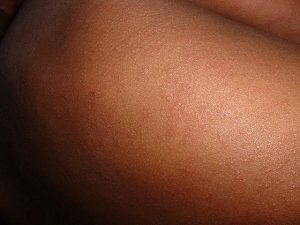By NewsDesk @infectiousdiseasenews
After reporting the most measles cases since 1992, there was concern that the United States would lose it’s measles elimination status. Fortunately, with the recent announcement of the end of the outbreak in New York, that concern has passed.

In the last year, the United Kingdom, Greece, Venezuela, and Brazil have lost their measles elimination status.
“We are very pleased that the measles outbreak has ended in New York and that measles is still considered eliminated in the United States. This result is a credit to the cooperative work by local and state health departments, community and religious leaders, other partners, and the CDC,” said HHS Secretary Alex Azar. “But this past year’s outbreak was an alarming reminder about the dangers of vaccine hesitancy and misinformation. That is why the Trump Administration will continue making it a priority to work with communities and promote vaccination as one of the easiest things you can do to keep you and your family healthy and safe.”
From January 1 to October 3, 2019, 1,250 individual cases of measles have been confirmed in 31 states. 75% of measles cases were linked to outbreaks in New York City and New York state, most of which were among unvaccinated children in Orthodox Jewish communities. These outbreaks have been traced to unvaccinated travelers who brought measles back from other countries at the beginning of October 2018.
“Our Nation’s successful public health response to this recent measles outbreak is a testament to the commitment and effectiveness of state and local health departments, and engaged communities across the country,” said CDC Director Robert R. Redfield, M.D. “CDC encourages Americans to embrace vaccination with confidence for themselves and their families. We want to emphasize that vaccines are safe. They remain the most powerful tool to preserve health and to save lives. The prevalence of measles is a global challenge, and the best way to stop this and other vaccine preventable diseases from gaining a foothold in the U.S. is to accept vaccines.”
Before the measles vaccine was introduced in the U.S., nearly all children got measles by the time they were 15 years of age. It is estimated three to four million people were infected, and among the 500,000 measles cases reported annually, 48,000 were hospitalized and 500 people died.
Since measles outbreaks continue to occur in countries around the world, there is always a risk of measles importations into the U.S.


One thought on “US holds on to measles elimination status”